The Earnie Awards Hall of Fame 2016: Weathering the volatile economic climate for nearly four decades, this year’s Hall of Fame recipients, an expert showroom rep and a skilled retailer, are being recognized for their outstanding perseverance and customer service.
Louise Connor, Owner of The Showroom
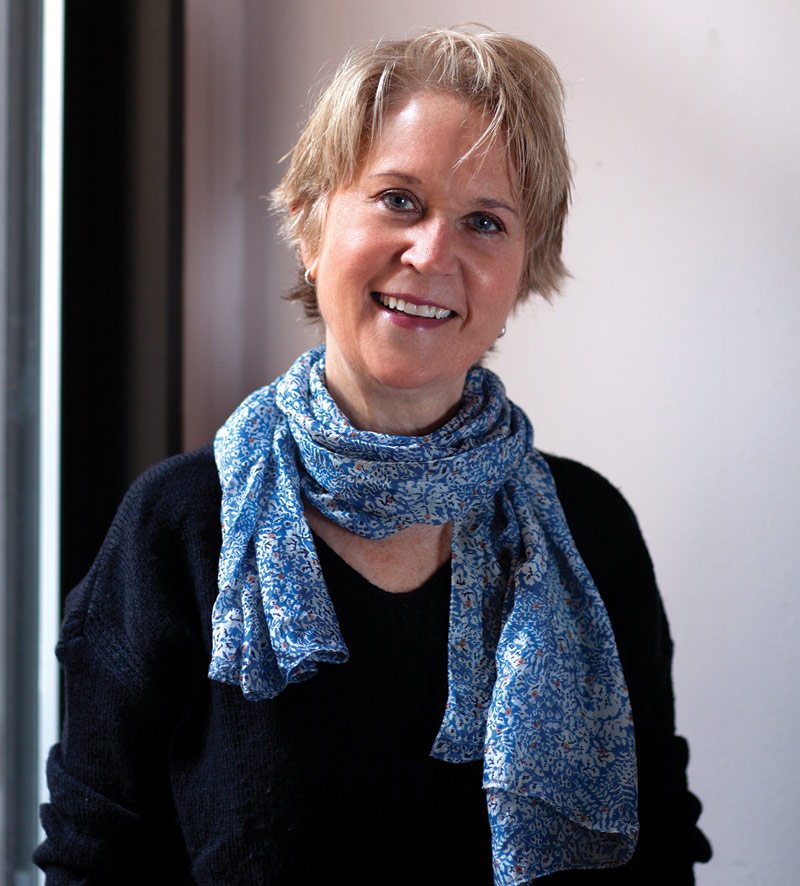
Louise Connor
Always having the intention that she would end up in the psychology field, Louise Connor was in for a suprise when a friend invited her to help silkscreen T-shirts for a startup business. Agreeing to lend a hand, she stumbled upon a new career path—one that would ultimately lead to nearly four decades serving the children’s fashion industry. Connor claims that her master’s degree in psychology from Columbia University didn’t go to waste though. In fact, it became a great business tool in understanding and relating to clients: “Sales is personality,” she offers. “As we know from all our colleagues, personality is present in abounds, and it’s up to you to decipher their needs and be as helpful as possible.”
Realizing her knack for childrenswear early on, Connor bought out the showroom she ran for her friend with the silkscreen business in 1980 (after only a year). Enter The Showroom, the commencement of Connor’s independent career as a showroom rep. Today, The Showroom operates like a well-oiled machine, nestled in a space on 33rd Street in New York. However, she admits that her journey to success began with a bit of trial and error: “When I started, I really didn’t know what I was getting into because it was not really something I was really trained for or looking to do,” she says. “It was truly an experiment and I was just going with the flow.”
After weathering several business cycles (from the booming economy in the ’80s to the economic recession in 2008, Connor credits her success to her flexibility in times of uncertainty: “I think my ability to be nimble in changing times has been key,” she gleans. “Even though tough times have been trying, I’ve always been able to maintain an optimism through change. By analysis, business can always be done in a different way.” Using logic to prevail was not only admired by Connor’s clients (and the overall stability of her showroom), but a trait that the Fashion Institute of Technology was eager to invite aboard its staff in 2009.
For almost three years, Connor taught “continuing education” workshops as an adjunct professor at FIT, discussing the inner workings of the children’s industry. In addition, she was offered a grant to run workshops for the industry helping to bring childrenswear professionals together for the good cause of education. “We shared resources, and we talked about receivables,” she reflects. “Simply how to keep businesses running in a smooth, profitable way.”
With today’s economic climate, The Showroom has adapted by carrying fewer lines than they had in the beginning in order to hone in on its strengths: “There was a time period when we carried a lot more brands and we found that it really worked for us,” Connor says. “But we’ve found that in this environment we seem to be more successful keeping a narrower focus.” Between Connor and her “incredible” business partner Miriam Buchman—hiring Buchman in 1991 is reportedly the best business decision Connor ever made—the two women have strategized the best formula for successful outreach: “It’s a tricky combination of how to reach people with new technology and at the same time not flood them with so much information that you know everybody else is sending and still get heard above the noise.” Through e-blasts to more than 400 industry professionals as well as print publicity in publications like Earnshaw’s, Connor is able to elevate her showroom and showcase her longstanding lines, some of which include Petit Lem, Books To Bed and Mayoral’s newborn division.
In addition to winning an Earnie Award, Connor says 2016 was a year of positive growth and change. Petit Lem transformed its line with a new look for the brand, while Connor also added Art & Eden, a new brand for the mother and child looking for an organic, free trade product as well as a strong charity component. So what’s in the pipeline for 2017? Only will time will tell as Connor stays hush about a big change to come. “It’s about brand realignment in the showroom,” she hints.
Going forward, The Showroom plans to do what it does best: customer service. Connor says her favorite part of the business is interacting with retail professionals: “It is a sector of the industry that is very friendly,” she says. “The store owners are easy to work with—always making it easy to build relationships.”
Cynthia Radocy, Owner of Space Kiddets
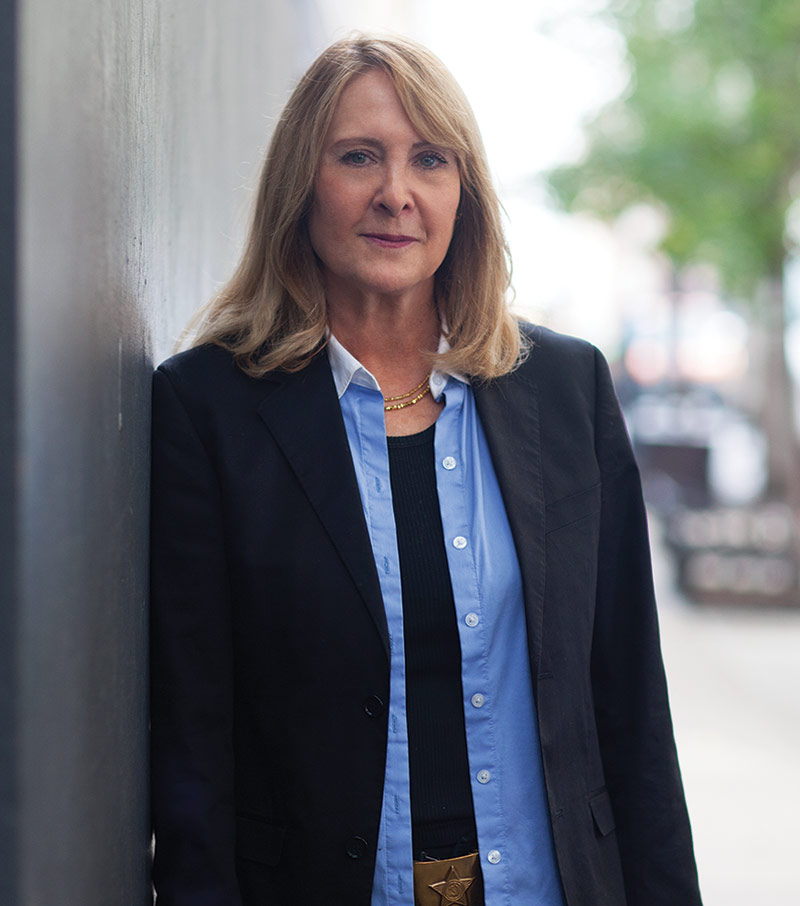
Cynthia Radocy
Cynthia Radocy was a glamorous fitting model in New York City and a regular at Studio 54 some 35 years ago. Childrenswear and retail seemed unlikely for the young woman and the Sex and the City-esque lifestyle she had created for herself. But as it often happens in this business, a child entered her life and turned her world upside down. Her sister had her first child in 1980 and, sensing a need in the marketplace for cool kids clothing, the two women soon opened Space Kiddets near the Flatiron district (she has since bought out her sister). “Back then, there were no Baby Gaps, there were no Zara Kids,” Radocy explains. “There was nothing in the downtown area. Baby clothes were either pale pink or powder blue, and we did all cotton goods. We even had pediatricians send patients to this area and, back then, it was a questionable area.”
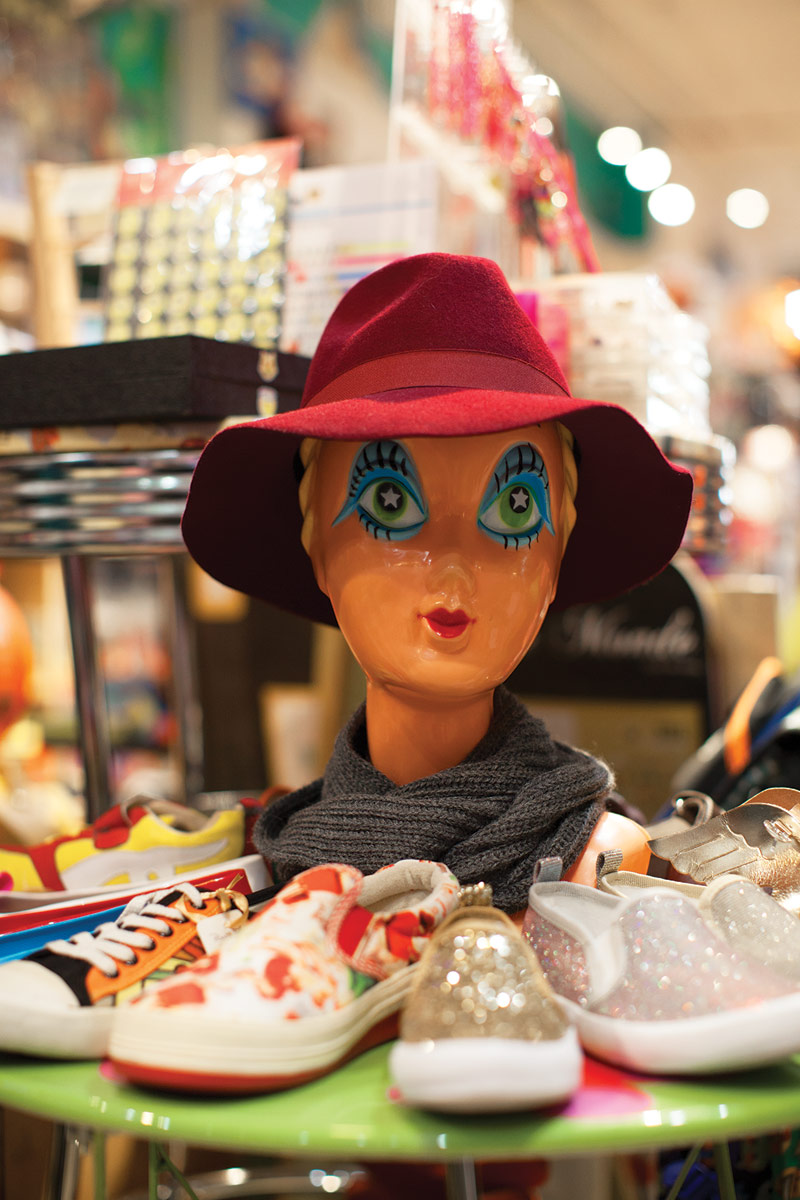
Space Kiddets’ footwear display
Radical for its time, Space Kiddets also sold all-black childrenswear luring celebrities like Cher who, at the time, was raising Chastity (now Chaz) Bono. Space Kiddets was also unique in the way it displayed clothing. “I grew up in Japan and we displayed the clothing like they do there—with pushpins stuck to the wall,” says Radocy. “A class from the Fashion Institute of Technology once studied our presentation of clothing.”
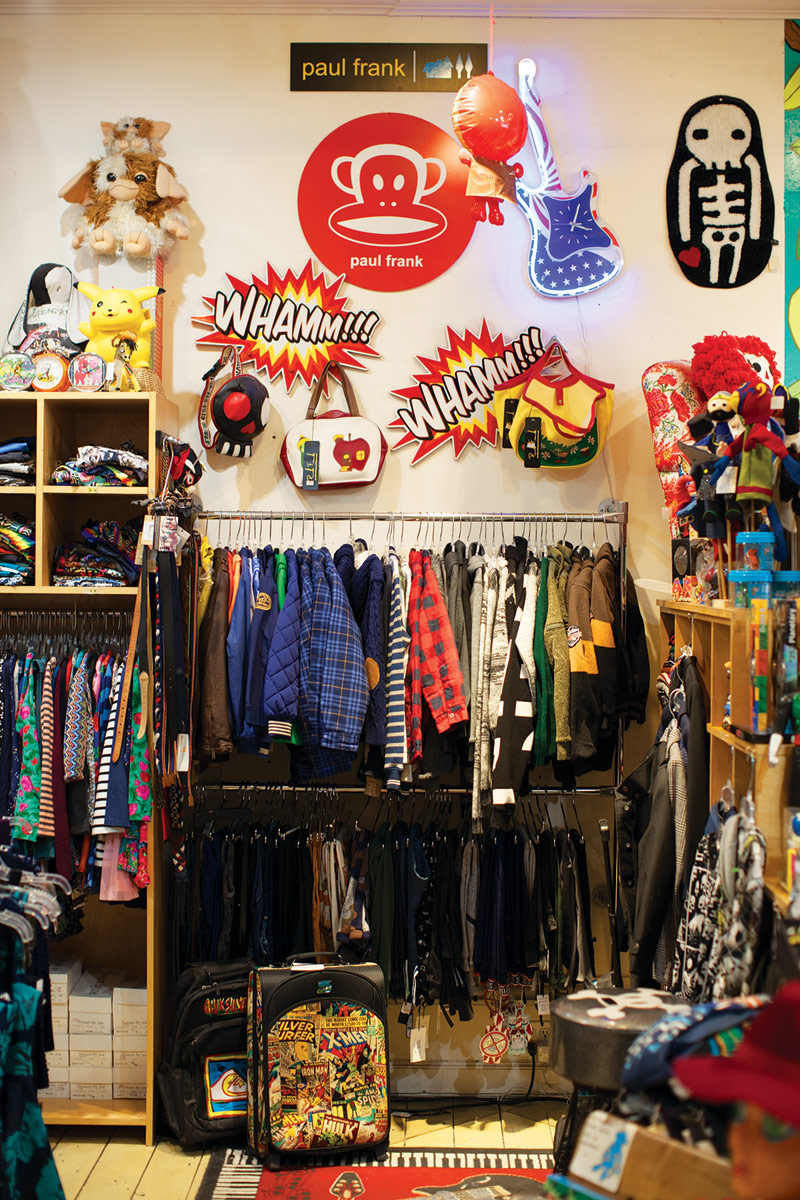
the Japanese-inspired approach Rodocy uses to merchandise the store.
Today, Space Kiddets is a feast for the eyes, unique in its product displays and merchandising and, for that reason and more, is being inducted into the Earnie Awards Hall of Fame. Shoes, vintage frocks, edgy clothing hang alongside the store’s toys. This is not the land of apparel sets. Here, you mix and match sweaters, outerwear, tutus and dressy wear. Look around and you see vestiges of Radocy’s upbringing in Japan with Oriental flourishes. There’s also a vintage lunch pail that features images of Space Cadets, the television show from the ’50s which inspired the store’s name. “A lot of the stuff you see in here are memories from my childhood,” she says. “I had someone come in once and say, ‘These are all your memories, aren’t they?’” The unique mix has kept generations loyal to the independent boutique. “I hear from customers, ‘Hang in there, it’s great to see you,’” she says, noting a loyal throng of customers travel to her store every Christmas. “They really still want this type of store to exist. But it’s a very different ballgame now, it’s very challenging.”
Among the challenges Radocy faces these days is European manufacturers demanding 30 percent up front and manufacturers selling directly to consumer. “The latter is a thorn in my side,” she laments. She will also drop a European line if she sees it on Amazon. The Internet, however, is not phasing her anymore. “Customers are realizing they like it when a sales associate remembers the names of their children,” she says. “Childrenswear is also very tactile and sensitive. I really think they are appreciative of this old-school type of atmosphere. With all of the technology out there, there aren’t too many interactive humanistic one-on-one situations anymore.”
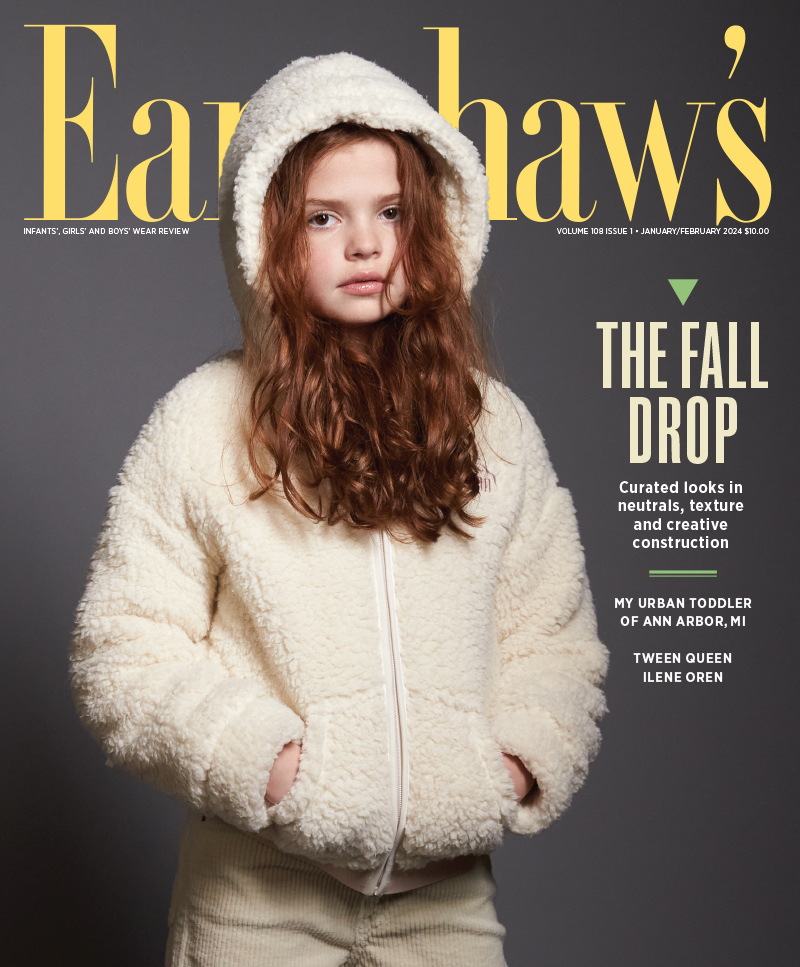


Leave a Comment: